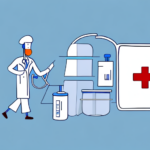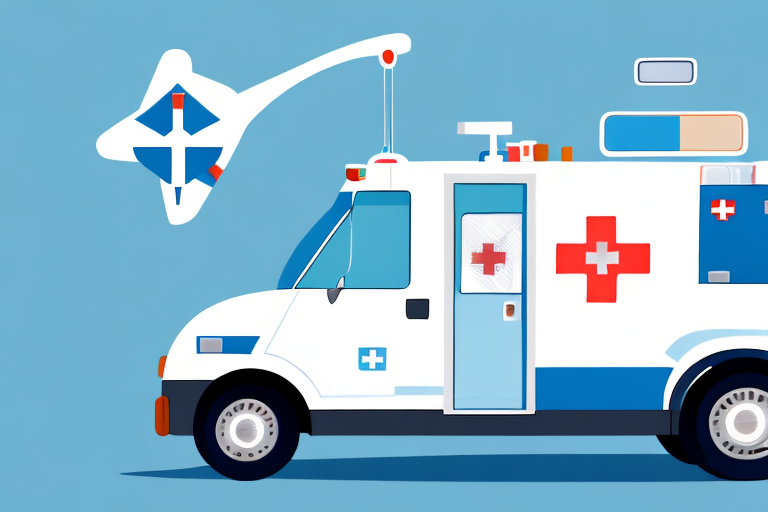Ensuring Accurate Test Results Through Effective Specimen Transportation
Transporting specimens is a critical component of healthcare processes. Unfortunately, it is often an overlooked aspect of healthcare, which is a significant oversight. Effective specimen transportation is essential for accurate test results, making it crucial to prioritize and ensure it is handled safely and efficiently. In this article, we will explore the various factors that make specimen transportation so vital and how you can ensure specimens are transported securely and reliably.
Importance of Specimen Transportation in Healthcare
Impact on Test Accuracy
Specimen transportation directly affects the accuracy of medical test results. Improper handling and transportation are among the leading causes of test result errors. According to a study published in the Journal of Clinical Pathology, factors such as temperature fluctuations, physical agitation, and inadequate packaging can compromise specimen integrity, leading to inaccurate outcomes.
Timeliness of Delivery
The time taken to transport specimens is critical. Extended transportation times increase the risk of specimen degradation or contamination, especially for samples requiring refrigeration or other special handling. Minimizing transportation time and maintaining appropriate conditions are essential to preserve specimen integrity and ensure reliable test results.
Selecting a Reliable Specimen Transport Provider
Compliance with Regulatory Standards
Ensure that the transport provider complies with all relevant regulatory requirements for specimen transportation. Providers should hold appropriate licenses and certifications and adhere to guidelines set by authorities such as the Centers for Disease Control and Prevention (CDC) and the Food and Drug Administration (FDA).
Experience and Expertise
Consider the provider’s experience and expertise in handling specimens. Providers with a long history in the industry are more likely to understand the complexities and challenges involved in specimen transportation, ensuring higher safety and reliability.
Customer Service and Communication
A provider that offers robust customer service can make a significant difference. Look for providers that offer real-time updates on specimen status and have dedicated teams to address any concerns promptly.
Best Practices for Specimen Transportation
Proper Packaging and Labeling
Proper packaging is essential to prevent leakage and contamination during transportation. Use appropriate containers and secure them to withstand physical stresses. Accurate labeling is equally important; labels should include specimen type, patient information, laboratory details, and collection date. This minimizes the risk of mix-ups and ensures correct handling.
Temperature Control
Different specimens require specific temperature conditions. Utilize temperature-controlled packaging such as insulated containers or dry ice to maintain the required temperatures throughout transit. Temperature monitoring devices can provide real-time data to ensure conditions remain stable.
Timely Transportation
Coordinate with transport providers to ensure specimens are delivered promptly. Establish clear protocols for handoffs and transfers to minimize delays and reduce the risk of specimen degradation.
Overcoming Common Challenges in Specimen Transportation
Maintaining Temperature Integrity
One of the primary challenges is maintaining the correct temperature. Utilize reliable temperature-controlled packaging solutions and have backup systems in place, such as portable refrigeration units, to handle unexpected delays.
Handling Delays and Contingencies
Unforeseen delays due to traffic or mechanical issues can jeopardize specimen integrity. Develop contingency plans, communicate promptly with all stakeholders, and ensure that there are protocols to protect specimens during delays.
Ensuring Proper Handling
Train personnel on proper handling techniques to prevent physical damage to specimens. Use personal protective equipment (PPE) and standard operating procedures (SOPs) to maintain specimen quality and safety.
Leveraging Technology for Enhanced Transportation Efficiency and Safety
Real-Time Tracking and Monitoring
Implementing technologies such as GPS tracking and real-time monitoring systems allows for continuous tracking of specimen locations and conditions. This ensures timely interventions if deviations occur.
Automated Routing and Scheduling
Use automated routing software to optimize transportation routes, reducing transit times and costs while ensuring timely delivery of specimens.
Advanced Packaging Solutions
Invest in smart packaging that can monitor and adjust conditions in real-time, providing alerts in case of temperature excursions or other issues.
Regulatory Compliance in Specimen Transportation
Adhering to Legal Requirements
Compliance with regulations is non-negotiable. Familiarize yourself with guidelines from regulatory bodies such as the U.S. Department of Transportation (DOT) and ensure all transportation practices meet these standards.
Proper Disposal of Medical Waste
Ensure that all waste generated during specimen transportation, including packaging materials and unused specimens, is disposed of according to local regulations to prevent environmental contamination and health hazards.
Documentation and Record-Keeping
Maintain detailed records of specimen transportation, including handling procedures, temperature logs, and delivery confirmations. Proper documentation is essential for compliance audits and quality assurance.
Future Trends in Specimen Transportation
Adoption of Autonomous Vehicles
The use of autonomous vehicles in specimen transportation is emerging, promising increased efficiency and reduced human error. These vehicles can operate continuously and navigate optimized routes, ensuring timely and reliable deliveries.
Integration with Telemedicine
As telemedicine grows, the demand for home-based specimen collection and transportation increases. Integrating specimen transport services with telehealth platforms can streamline the process, making healthcare more accessible.
Enhanced Data Analytics
Advanced data analytics can provide deeper insights into transportation patterns, helping providers optimize routes, predict potential issues, and improve overall service quality.
Conclusion
Ensuring safe and efficient specimen transportation is vital for accurate test results and overall patient care. By adhering to regulatory requirements, following best practices, and leveraging advanced technologies, healthcare providers can enhance the reliability and safety of specimen transportation. Investing in these areas not only improves healthcare outcomes but also builds trust and reliability in medical services.




















